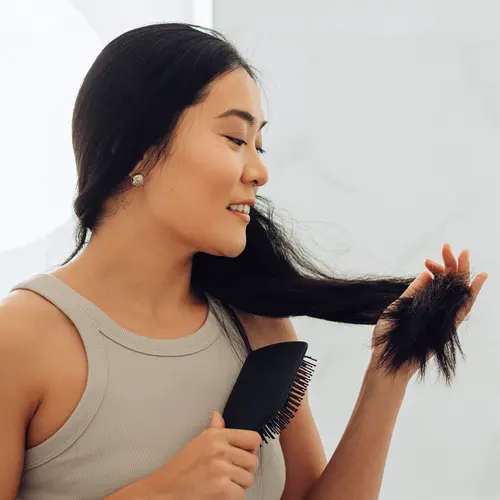Carrot seed oil is an essential oil, which is a combination of the aromatic compounds that naturally exist in plants. Plants use these chemicals for their own health and survival, and you can use them for their medicinal benefits as well.
What Is Carrot Seed Oil?
Carrot seed oil is steam distilled from the carrot seed.
The carrot plant, Daucus carota or D.sativus, has white flowers. The leaves can cause allergic skin reactions in some people. While carrots grown in your garden are a root vegetable, wild carrots are considered a weed. The plant might also be called:
- Queen Anne’s lace
- Bishop’s lace
- Bird’s nest
- Bee’s nest
- Devil’s plague
You can also find cold-pressed carrot seed oil. This is a fatty carrier oil that is pressed from the seeds and is not the same thing as the essential oil. This is used mostly for skincare and is often confused with carrot seed essential oil.
You might also see a carrot oil infusion. This is where carrot root is soaked in an oil like olive oil or coconut oil for a while and then strained. This process brings the compounds out of the root and suspends them in the fatty oil. These are usually used in cooking for added flavor.
Benefits of Carrot Seed Oil
Because of the compounds in carrot seed essential oil, it can help:
Remove fungus. Carrot seed oil is effective against some types of fungus. Research shows that it can stop fungus that grows in plants and some types that grow on the skin.
Fight bacteria. Carrot seed oil can fight some bacteria strains like Staphylococcus aureus, a common skin bacteria, and Listeria monocytogenes, a bacteria that causes food poisoning.
Block sunlight. A compound called umbelliferone, or 7-hydroxycoumarin, is found in carrot seed essential oil. This compound absorbs UVB light and is commonly used in sunscreens.
While carrot compounds are found in sunscreen, there’s no evidence that carrot seed oil is safe to use alone as a sunscreen. While it might block UVB light, no evidence shows that it can stop sunburns or sun damage, or protect against skin cancer, so you will still need to wear sunscreen.
Even skin tone. Because carrot seed oil absorbs UVB light, it might also help with hyperpigmentation.
Risks of Carrot Seed Oil
Lots of essential oils are irritating to the skin and can cause rashes and sensitivities. Carrot seed oil can do this, though it’s only mildly irritating.
You should mix carrot seed essential oil with a fatty oil like coconut oil or grapeseed oil before putting it on your skin.
How Carrot Seed Oil Is Used
Mostly, people use it for skincare. You can buy carrot seed essential oil on its own, but you can also find it in many different personal care products like:
- Face wash
- Facial oil
- Serum
- Dark spot treatments
Its antifungal and antibacterial properties might help with skin infections. Some skin conditions like eczema often have extra Staphylococcus bacteria. Carrot seed oil might help relieve eczema by fighting it.
Some people also add carrot seed oil to shampoo and conditioner to help nourish their scalp.


